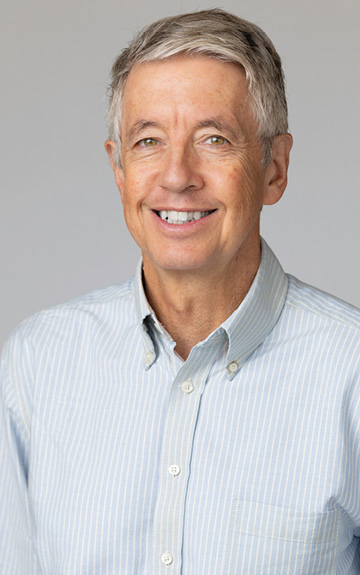Michael Harvey
- John S. Toll Professor of Leadership Studies, Department of Business Management

Michael Harvey is the John S. Toll Professor of Leadership Studies at Washington College (Chestertown, Maryland, USA). He earned a B.A. in English from the University of Maryland, an M.S. in International Business from the University of Milwaukee, and an M.A. and Ph.D. in Political Theory from Cornell University. He has taught at Washington College since 1998, serving as interim Provost from 2020 to 2023. He studies the intersection of leadership, social science, and the humanities.
Education
- Ph.D., Government (1995). Cornell University (Ithaca, NY). Dept. of Government.
- M.S., International Business (1998). University of Wisconsin-Milwaukee. School of Business Administration.
- M.A., Government (1990). Cornell University. Dept. of Government.
- B.A., English (1982). University of Maryland (College Park, MD). Minor: political science.
Academic Expertise
Leadership is best understood as inquiry that sparks action. Leaders help groups confront and solve their biggest problems, from identity, purpose, and efficacy to establishing a frame of shared meaning.
Additional Information
- 1998-present, Asst. Prof., Assoc. Prof., Prof., Chair, Dept. of Business Management
- Interim Provost, 2020-2023
- Questioning Leadership: A Framework for Growth and Purpose (Cambridge University Press, 2024);
- Dead Precedents: Donald Trump in Historical Perspective (Routledge/Taylor & Francis, 2022);
- The Nuts and Bolts of College Writing (3rd ed., Hackett, 2020).
- FYS 101 Imagining Leadership
- BUS 220 Creativity and Innovation in Products and Services
- BUS 302 Organizational Behavior
- BUS 330 Global Business Experience
- BUS 334 Leadership